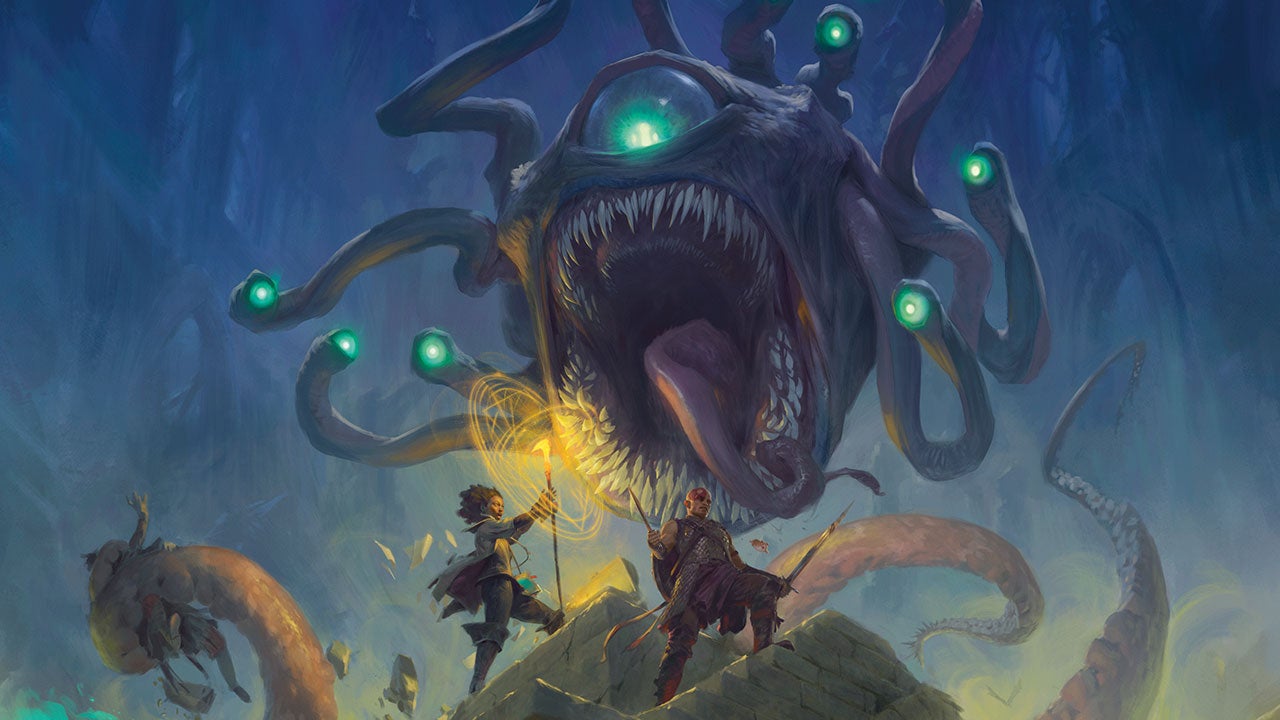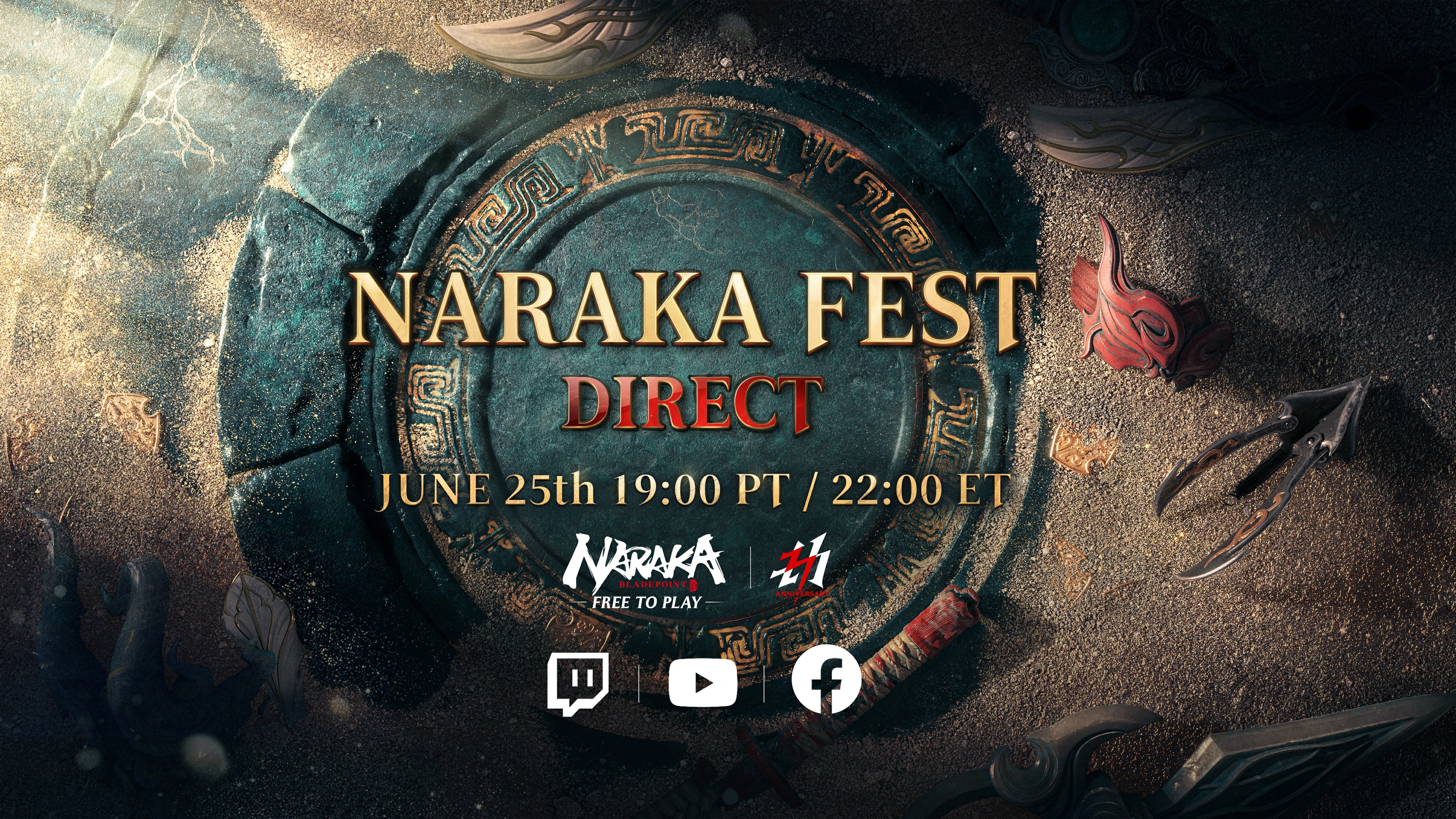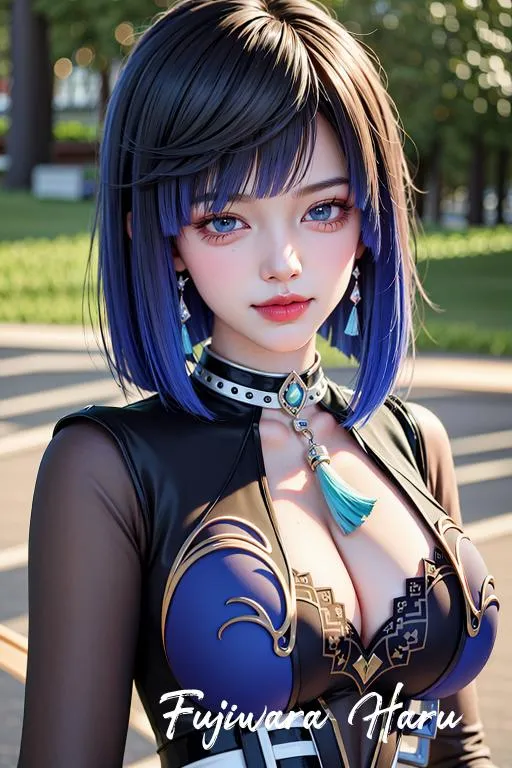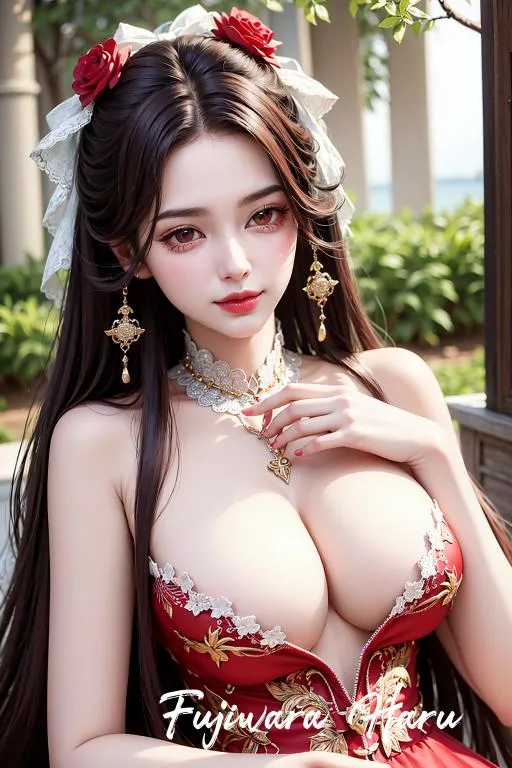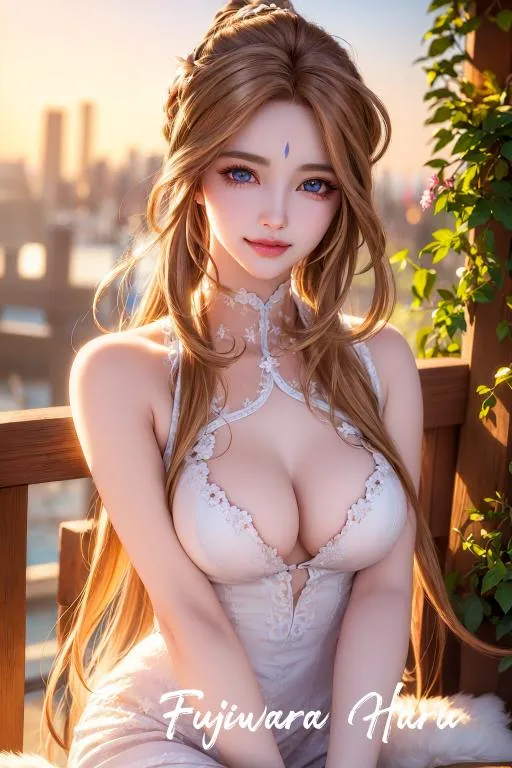The Witcher voice actor Doug Cockle has voiced Geralt of Rivia for nearly two decades, and will soon expand beyond video games to voice the White Wolf in upcoming Netflix film Sirens of the Deep.
In a new interview with IGN, Cockle discussed this new role alongside his thoughts on The Witcher Remake 18 years after he recorded lines for the original, the rise of artificial intelligence in the video game industry, and more.
Check out the full interview with Cockle below, which also includes the voice actor's favourite Geralt moments and even his best theories on what The Witcher 4 (codenamed Polaris) is actually about as it moves beyond Geralt.
What is it like having been Geralt for all these years, from when the IP was practically unknown beyond Poland to today where it's a household name?
Doug Cockle: It has been a blessing, really. The joy of it has been the journey, because as you pointed out, when The Witcher video game first started, it was a no-name developer making their first game. The Witcher wasn't really known. The books weren't really known beyond the Polish and a few other eastern European language book readers. So people in the west didn't know anything about it.
I've been on this journey with CD Projekt and with the fans as well, where it was just this kind of wonderful unknown world created by this Polish author, who was known better for other things. And then gradually, it's just become this whole thing. I remember, I think it was 2016 or maybe late 2015, when a journalist first approached me about The Witcher.
No one had asked me about it except for a few hardcore game students, because I was teaching at the time. I used to run a BA honours acting course here in Bournemouth, and I was the course leader, and so I was really busy. So I wasn't getting onto Reddits or subreddits, or any of the online forums. I had done a job, the game was out. It was cool. I was playing it. It was getting great reviews. But nobody gave a toss who I was.
I was just living my day-to-day life, teaching students, managing the course, doing all those things that you do, so my focus wasn't on how The Witcher was doing. I wasn't shouting about it on socials, really. I was a little bit, but not a lot, and nobody really cared. And then suddenly this journalist came, contacted me and said, "Hey, can I come talk to you?" And it was that person who actually kind of cottoned me onto how big The Witcher was getting. I just didn't have any idea.
Then another journalist named Julia Hardy, she's a presenter for various things on gaming and technology, and we were at an event chatting and stuff, and we just got on really well. And we ended up staying out really late together looking for macaroni and cheese in Soho. And we never found the macaroni and cheese, but we had a great time, shared an Uber on our respective journeys home. And she kind of said, "Doug, you're so funny. You still don't realize how big The Witcher is, do you?" And I was like, "Well, I don't know. How big is it?"
I guess what I'm trying to say is that it went from being this little game that I provided a voice for, we spent one week recording and then three or four days doing pickups several months later back in 2005, to being this phenomenon of a game that now has become even more than that. It's been a wild ride. It's the kind of ride that a lot of actors don't get to go on. So I just feel really, really thankful that I've been able to be on the ride.
It's now grown even more too with your involvement in The Witcher: Sirens of the Deep animated film on Netflix. What's that been like and how much work have you done so far?
DC: That's really exciting. I was not expecting to be asked to do that. I was fully expecting somebody else to be doing that because of the Netflix relationship. Because until I was asked to do the Witcher anime, I had no real association with Netflix at all, other than watching it. So when I got the call, "Are you interested in voicing Geralt in the Netflix Witcher anime?" I was like, "Yeah!"
All I can really say at this point, I think, is that I have spent a long afternoon recording for The Witcher anime. I don't know if I'm done or if there's more to come, but we recorded quite a lot, so I think we'll have to wait and see what happens. There may be some pickups later on. There may be additional lines.
What can you tell us about the film's story?
DC: I'm afraid I'm going to have to be a little bit quiet on that one because I don't want to give anything away. All I can say is, it is based on that particular story, A Little Sacrifice. It's fantastic. I honestly can't remember to what extent it might deviate from the story itself. When I was recording it, I was remembering a lot of what we were recording, but as always, with any adaptation, there has to be room for a bit of license to be taken. So until we see it, I won't actually know. I need to go back and read this story, to be honest.
Was recording the film different to recording the games at all? Did you have to change anything?
DC: I personally didn't, because really, what I was asked to do was to perform Geralt as I've performed him previously. So I really just went in and did the job. What was interesting was that it was a linear narrative that we were recording, whereas with the games, it's not a linear narrative. So you go in and you don't know which branch of which tree you might be recording on a given day. On this, I have the whole script beforehand. I knew what the storyline was, and we recorded it in order.
One of the things I did find really, really fascinating about it, though, and I don't think this is too much of a giveaway, was the effort to get my head around Mer-speak. That was difficult. And I think I did the director's head in a little bit because I thought I had it. I thought I was doing good with it, and then I could almost hear in his voice when he was saying, "Okay, Doug, that was good. Now, let's try that again and let's think about this." And I was like, I'm not hitting it. Whatever it is they're looking for, I'm not getting it.
It's hard because the Merfolk speak, they're described in the books as having a sing-songy kind of lilt to their voice, and Geralt is anything but. So that was what I was really struggling with, was getting this sing-songy kind of quality into Geralt's, gruff, somewhat monotone delivery. It was a real challenge. I'll be interested to see what we actually got in the end.
Is recording with myriad dialogue outcomes and story differences something you're totally used to now?
DC: Yeah. Well, it's what I do. Most of my work as an actor is in the games industry, and so I'm very, very used to recording the responses to different choices that the player might make, and then having to fill that emotional void with something that's appropriate for the moment with that character. So that's what I'm used to. So recording anything, even a television series or a film, they're not recorded in sequence. Quite often, they record middles and ends, bits before they record the beginnings. So it's filming, shooting, recording, out of sequence, it's all stuff that I'm more used to than recording a script straight through. I don't do audiobooks or anything like that. It may not sound like something that should feel like a novel experience, but it was for me.
Because the only other place I've really experienced that is in shorter scenes, like in corporate video or things like that, where you have three pages of script, you're going straight through, or in the theatre when you memorize a whole play and you do it in front of a live audience. So more often than not, I find myself recording out of sequence or recording branches that require different emotional responses on the same day to the same kind of thing.
[Branching dialogue is still] always a challenge because what you're looking for as an actor, what I'm looking for anyways, is a truthful response to whatever the stimulus is. I'm looking for something that an audience can relate to, that they don't feel is false. So sometimes the challenge of finding that in three different scenarios, for example, with three different emotional or psycho-emotional responses, that can be really challenging. But more often than not, in a good way, a bit of a challenge in any job is a good thing. And I think when I first started in games and first started working out of sequence or with different branches, I think I perhaps found it more challenging, and I'd never really worked that way before.
The Witcher is obviously growing more on the game front too. Would you want to return as Geralt in upcoming projects like The Witcher Remake, Polaris, and Sirius?
DC: Oh, absolutely. I would love to just keep on voicing Geralt until I can no longer voice anymore. It's just become such a part of me. I'm thrilled every time CD Projekt calls me up and says, "Hey, Doug, are you available for such and such?" And my heart does a little flutter and leaps, and I go, "Yes, of course I am," because I love it so much.
I don't have as close a relationship with many other developers, and a lot of the other developers who I know fairly well are indie developers so they're much smaller in scale in terms of what they're doing and everything else. But CD Projekt, they've always been good to me. They've always been very kind to me, and whenever I've had an issue that I needed to try and sort out and I really thought that they needed to weigh in on something, they've always weighed in appropriately.
So yeah, I have a lot of respect for CD Projekt Red. I don't work for them, I work with them. So I sit a little bit on the outside of the company itself. I'm like a satellite that kind of spins around the inner workings of the company, which I know nothing about, and every once in a while, they call me in and I come in and do a little thing, and then I go back into my orbit. But they're absolutely lovely. Everybody I've ever met from CD Projekt has been lovely.
How do you feel about The Witcher Remake in general, as one of the key figures behind the original game?
DC: I'm super excited about it, because if you think about it, when Witcher 1 was made, the video game, The Witcher, I was recording the voice in 2005. I think the game itself came out in around 2007. That was a long time ago. That was nearly 20 years ago.
The technology has changed so much. And I could have this wrong but I understand that they're going to be recreating it in Unreal Engine 5. So that's going to be really exciting because the stuff they can do with graphics in Unreal Engine 5 now compared to what they were able to do when they first made The Witcher 1, it's night and day. It's really exciting.
Do you have any thoughts or theories about the next mainline Witcher game, codenamed Polaris?
DC: That's going to be a whole other thing because again, technology's changed. Their focus for the game is not going to be Geralt. They've said that, so I'm really excited to see what their focus is. I have ideas but that's all they are.
Some people have seen the image of the medallion that has been put out by CD Projekt that looks like a Lynx. They've said maybe they're going back in time to look at some of the origins of the Witcher schools and stuff like that, and maybe they'll focus on a Witcher from the Lynx School or something. I'm just saying what other people have said.
The best theory I've heard, because it does make sense, is the theory that they'll focus on Ciri in her adventures in some way, shape, or form. Because spoiler alert, in the books, Ciri travels between dimensions and between worlds. It's one of her powers, and she does a little bit of that in the game. So I think it would be a really exciting thing for Witcher 4 to focus on Ciri's adventures in some way.
They kind of set her up for it in The Witcher 3 because you can play as Ciri in certain episodes of the game. So it just feels like if they don't do that, then I know what The Witcher 5's going to be about, because it just makes sense. But I have no idea. I have no idea. I'm excited to find out.
Switching gears a little, the presence of AI has been growing in the video game voice actor realm recently. What do you think about AI?
DC: Well, I think it's inevitable. I was contacted nearly three years ago by an AI company who wanted me to put my Geralt voice on their database. And I said no, and I still say no. But that's not because I don't like AI. It's because I think with voice actors, particularly with voice actors who do main character roles, it is a reality that people are ripping our voices off. That's happening. It's happened to me on multiple occasions. I can't even police it because I would spend all my time policing this stupid stuff.
It's not that anything that I've seen so far has been bad. It's mostly modders who are making additional bits of game to play or just to share with the community. Yeah, I've seen a couple other things. I don't want to mention anything in particular because I think there's some stuff happening in the background with some of these things.
But basically, every time somebody does that, they're effectively robbing me of income, and not just me, any other voice actor who they do it with. Anybody, David Hayter, Elias Toufexis, Ashly Burch, Cissy Jones, anybody who's done a big character or an important character in a video game, we're all watching our voices get used in ways that we would rather they weren't.
The scary part is that, and we have seen some of this as well, this is the bit that we really don't like about AI, is that if they can do it for things that are just commercially questionable, then they can do it with things that are politically or ethically bad. Somebody could use AI to produce something racist using Geralt's voice, using my voice, or just something against anything that most normal people think is good. That's where the AI gets dangerous. Fake news, false news, false opinions. We're seeing it with politicians now. People are putting things out there. So AI is not the problem. It's the people using AI.
AI is inevitable and developers will use AI. We are not 100% sure exactly what that means. They're already doing it in various ways, filling in background, NPC voices, and things like that, which is unfortunate because those voices were all human beings at one point, and the voices are all modelled on human beings. So they have taken someone's voice, put it into their database, digitized it and are using it to say things that the individual never said. There's something unethical about that and so there's a lot of debate going on.
But again, I mentioned Cissy Jones before. She's a voice actor in the States. She's actually tackling this head-on. She's developing her own AI company called Morpheme.ai specifically for voice actors. She's doing it to protect herself, and I've spoken with her about this and she's really keen on it, and I'm keen on it as well. She just wants to create a way, if they're going to do this, if this is going to happen, then we need to create a way for the actors to control how their voice is used.
I've spoken with a number of AI developers who are interested in doing a similar kind of thing. So there are people out there who are aware of the potential problem here and are working towards some kind of a solution that will make people happy. Because I think modders are great. It's not that I want to punish modders. What they put out is, for the most part, interesting, cool fan-made stuff that just celebrates the world that they love, and that's to be celebrated. But there's a line there somewhere, and where exactly that line is what the AI debate is really, really starting to tease out of the industry.
I don't get angry with modders who use my voice. I get angry with the platforms who provide it. I mean, if you provide something to people, they will use it. Whether it's right or wrong or that's been decided yet, they will use it. So yeah, it's more those companies who develop the tools by which you can take someone's voice from a game, plug it into a tool that then digitizes it and copies it and makes it possible for you to make that voice say anything you want. That's the issue, really.
I would think that if you put it into really personal terms, if somebody who isn't a voice actor, and you're a streamer for example. Or not even a big name streamer, or just someone who puts out instructional videos on YouTube or something like that. And somebody thinks you have a lovely voice, they rip off your voice, and then they put up an anti-abortion thing with your voice. And if that's not something that you agree with, then you'd be offended. You'd feel like you've been wronged.
I think sometimes people think, "Oh, voice actors, they make all this money." We don't, first of all. Compared to TV and film people, we really don't. They make all this money. They're famous, blah, blah, blah. And they're crying about somebody stealing their voice to make a mod. And it's like, no, that's not what we're crying about. That's not it at all. Put the shoe on your foot.
If your voice was taken to do something without your permission, how would you feel? No matter who you are, you wouldn't feel good about it, would you?
It's changed a lot as well, because when The Witcher 3 came out, I don't think that people playing games, not that they weren't interested, but they didn't really think about who was voicing these characters, I don't think. It wasn't something that was of great interest. But I've watched over the years, it has become more and more interesting to players and to fans who the people are behind these voices, and that's a fantastic thing.
But it also means that those voices are much more personalized. It's not just Geralt. That is my voice. One of the wonderful things about the human voice. People can and do impressions of other people and do really good impressions, but it's never quite the actual person, is it? Never quite the actual person, because every person on this earth has their own individual unique set of vocal cords and sinuses. Their build, their physical build is unique. It's like a snowflake. So what I certainly like to think anyways, is that I am the only person in this world who can do Geralt's voice the way I do it. Loads and loads of other people can do a Geralt-like voice. And maybe in a different world, maybe they would've been Geralt, but they're not my Geralt.
Ending things on a lighter note, do you have a favourite line of Geralt's? Do any stand out to you?
DC: I don't have a favourite, because there are so many good lines in The Witcher. I mean, there's the good old standbys of things like "wind's howling", "looks like rain", "come on Roach". Those kinds of things. But there's also... Some of the best moments in The Witcher, because it's such a serious game in so many ways. It's so nice when we get to see Geralt just being ridiculous, like when he's going after Princess the Goat. And he's going, "Here Princess, Princess. Here goat, goat, goat." Or whatever he says in there. It's just funny to hear him say stuff like that. And he has the whole thing where he has to catch the pigs. And he's got some dialogue in there that's just hilarious. Because you don't expect to hear it come out of Geralt.
Ryan Dinsdale is an IGN freelance reporter. He'll talk about The Witcher all day.
